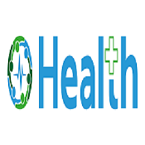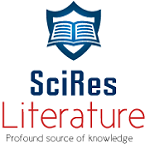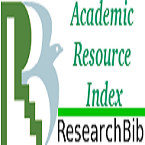Recommended Global Gastroenterology Webinars & Conferences
Europe & UK
Asia Pacific & Middle East
WORLD GASTROENTEROLOGY 2026
About Conference
Welcome to the 20th World Congress on Gastroenterology - Therapeutics & Hepatology, scheduled to take place on April 20-21, 2026, in the vibrant city of Barcelona, Spain. This premier event is dedicated to advancing the field of gastroenterology and hepatology, bringing together leading experts, researchers, and practitioners from around the globe.
Our Mission
At the 20th World Congress on Gastroenterology - Therapeutics & Hepatology, our mission is to foster innovation and collaboration in the fields of gastroenterology, therapeutics, and hepatology. We aim to provide a comprehensive platform for the exchange of cutting-edge research, clinical practices, and emerging therapies. By bridging the gap between research and clinical application, we strive to enhance patient care and improve outcomes in gastrointestinal and liver diseases.
What We Offer
Cutting-Edge Research and Insights: Engage with pioneering research and groundbreaking studies presented by world-renowned experts. Our scientific sessions will cover the latest advancements in gastrointestinal and hepatological research, including new therapeutic strategies and emerging trends.
Interactive Workshops and Panels: Participate in interactive workshops and panel discussions that delve into practical applications of research findings. These sessions are designed to facilitate hands-on learning and foster dialogue among professionals.
Networking Opportunities: Connect with peers, thought leaders, and industry experts from around the world. Our congress offers ample opportunities for networking, collaboration, and the exchange of ideas.
Exhibition and Sponsorship: Explore a diverse range of products and services showcased by leading companies in the field. Our exhibition will feature the latest technologies, treatments, and innovations in gastroenterology and hepatology.
Join Us
We invite you to join us at the 20th World Congress on Gastroenterology - Therapeutics & Hepatology to be a part of this significant event. Whether you are a researcher, clinician, healthcare provider, or industry professional, this congress offers a unique opportunity to gain insights, share knowledge, and contribute to the advancement of our field.
Sessions/Tracks
Track 01: Advances in GERD Treatment
Gastroesophageal reflux disease (GERD) is a chronic condition characterized by stomach acid flowing back into the esophagus, causing irritation and discomfort. Advances in GERD treatment are revolutionizing patient care, offering new hope for effective management and relief. Recent innovations include enhanced pharmaceutical therapies, such as proton pump inhibitors (PPIs) and H2 receptor blockers, which significantly reduce acid production and heal esophageal inflammation. Minimally invasive surgical techniques, like laparoscopic fundoplication, provide long-term solutions for patients unresponsive to medication. Additionally, cutting-edge endoscopic procedures, including radiofrequency ablation and magnetic sphincter augmentation, are proving to be effective alternatives to traditional surgery. Lifestyle modifications, such as dietary changes, weight management, and avoiding trigger foods, remain essential components of comprehensive GERD management. These advancements in GERD treatment are improving patient outcomes, reducing symptoms, and enhancing the overall quality of life for individuals suffering from this condition.
Track 02: Hepatitis C Therapeutics
Hepatitis C, a viral infection that causes liver inflammation, can lead to severe liver damage if left untreated. Recent advances in Hepatitis C therapeutics have revolutionized patient care, offering highly effective and well-tolerated treatment options. The development of direct-acting antivirals (DAAs) has been a game-changer, providing cure rates exceeding 95% with shorter treatment durations and fewer side effects compared to previous therapies. These medications target specific steps in the viral replication process, effectively eradicating the virus from the body. Combination therapies, such as sofosbuvir/velpatasvir and glecaprevir/pibrentasvir, have simplified treatment protocols, making it easier for patients to adhere to the regimen. Additionally, ongoing research into pan-genotypic treatments aims to provide universal solutions across all Hepatitis C genotypes. Early diagnosis and access to these advanced therapeutics are crucial for preventing complications like cirrhosis and liver cancer, ultimately improving patient outcomes and quality of life for those affected by Hepatitis C.
Track 03: Innovations in IBD Management
Inflammatory Bowel Disease (IBD), encompassing Crohn's disease and ulcerative colitis, presents significant challenges for patients and healthcare providers due to its chronic, relapsing nature. Innovations in IBD management are transforming the landscape of treatment, offering new hope for long-term disease control and improved quality of life. Advances in biologic therapies, such as anti-TNF agents (infliximab, adalimumab) and integrin inhibitors (vedolizumab), target specific pathways in the inflammatory process, reducing symptoms and promoting mucosal healing. Emerging therapies, including Janus kinase (JAK) inhibitors like tofacitinib, offer additional options for patients who do not respond to conventional treatments. Precision medicine approaches, utilizing genetic, microbial, and immunologic profiling, are enhancing personalized treatment strategies. Additionally, advancements in non-invasive monitoring techniques, such as fecal calprotectin testing and capsule endoscopy, enable more accurate disease assessment and management. These innovations in IBD management are paving the way for better disease control, fewer complications, and improved overall patient outcomes.
Track 04: Liver Cirrhosis: New Therapies
Liver cirrhosis, a progressive liver disease characterized by fibrosis and loss of liver function, has traditionally been challenging to manage, often requiring liver transplantation in advanced cases. However, recent advances in therapy are offering new hope for patients. Innovative approaches in managing liver cirrhosis include novel pharmacological agents aimed at slowing or reversing fibrosis progression. For instance, antifibrotic drugs such as cenicriviroc and simtuzumab are undergoing trials to assess their efficacy in reducing liver scarring. Additionally, advancements in treatment for complications associated with cirrhosis, such as portal hypertension and ascites, include new interventional techniques and medications. Strategies like transjugular intrahepatic portosystemic shunt (TIPS) and new diuretics are improving patient outcomes. Lifestyle modifications and early intervention are also gaining importance, emphasizing the role of weight management, dietary changes, and the management of underlying conditions such as hepatitis. These new therapies are enhancing the quality of life and extending survival for individuals with liver cirrhosis.
Track 05: NAFLD and NASH Treatments
Non-alcoholic fatty liver disease (NAFLD) and its more severe form, non-alcoholic steatohepatitis (NASH), are increasingly recognized as major contributors to liver disease and metabolic syndrome. Advances in NAFLD and NASH treatments are bringing promising new options for managing these conditions. Recent developments include novel pharmacological agents aimed at reducing liver inflammation and fibrosis. Medications like obeticholic acid and elafibranor are being investigated for their potential to improve liver histology and metabolic parameters. Lifestyle modifications remain crucial, with weight loss through diet and exercise proving effective in reducing liver fat and inflammation. Emerging therapies also include anti-fibrotic agents and medications targeting specific pathways involved in lipid metabolism and inflammation. Additionally, advancements in non-invasive diagnostic tools, such as imaging techniques and biomarkers, are enhancing early detection and monitoring of disease progression. These innovations are improving treatment options, offering hope for better management and potentially reversing the course of NAFLD and NASH.
Track 06: Emerging Therapies for Crohn's
Crohn's disease, a chronic inflammatory bowel condition, has long posed treatment challenges due to its complex and variable nature. Emerging therapies are significantly advancing the management of Crohn's disease, offering new hope for patients. Recent innovations include the development of novel biologic agents targeting specific inflammatory pathways. For instance, medications such as ustekinumab and risankizumab, which inhibit interleukin-12 and -23, have shown promise in reducing inflammation and inducing remission. Additionally, small molecule drugs like JAK inhibitors (tofacitinib) are being explored for their potential to modulate immune responses and provide relief for patients with refractory disease. Advances in personalized medicine, including genetic and microbiome profiling, are facilitating tailored treatment strategies that optimize efficacy and minimize side effects. Enhanced non-invasive monitoring techniques, such as fecal biomarkers and advanced imaging, are improving disease assessment and management. These emerging therapies are poised to improve patient outcomes, offering more effective and targeted treatment options for Crohn's disease.
Track 07: Hepatocellular Carcinoma: Latest Approaches
Hepatocellular carcinoma (HCC), the most common type of primary liver cancer, presents significant treatment challenges, especially in advanced stages. Recent advancements are transforming the management of HCC, offering new hope for improved outcomes. Targeted therapies, such as sorafenib and lenvatinib, have become standard for advanced HCC, providing substantial improvements in survival rates. Emerging treatments include novel multi-kinase inhibitors and immune checkpoint inhibitors, such as pembrolizumab and nivolumab, which have shown promise in enhancing the body's immune response against cancer cells. Additionally, locoregional therapies, such as transarterial chemoembolization (TACE) and radiofrequency ablation (RFA), continue to evolve with more refined techniques and better outcomes. Recent research into combination therapies, integrating systemic treatments with locoregional approaches, is showing potential in improving efficacy. Advances in early detection through improved imaging technologies and biomarkers are also enhancing diagnosis and treatment planning. These latest approaches are advancing the management of HCC, leading to more effective and personalized treatment strategies.
Track 08: Esophageal Disorders: Current Treatments
Esophageal disorders, including gastroesophageal reflux disease (GERD), esophageal cancer, and dysphagia, present complex treatment challenges that have seen significant advancements in recent years. Current treatments for GERD include improved proton pump inhibitors (PPIs) and newer medications such as potassium-competitive acid blockers, offering enhanced symptom relief and mucosal healing. For severe cases unresponsive to medication, minimally invasive procedures like laparoscopic fundoplication and endoscopic radiofrequency ablation provide effective alternatives. Esophageal cancer management has progressed with advancements in targeted therapies and immunotherapy. Drugs like pembrolizumab and nivolumab are now used to enhance immune responses against cancer cells, while precision medicine approaches guide tailored treatment plans based on genetic profiling. For dysphagia, innovative interventions such as balloon dilation and endoscopic stenting are improving patient outcomes. Additionally, advancements in diagnostic tools, including high-resolution manometry and pH monitoring, are aiding in precise diagnosis and personalized treatment strategies. These current treatments are significantly enhancing the management of esophageal disorders, improving patient quality of life.
Track 09: Pancreatitis: Modern Therapeutic Strategies
Pancreatitis, an inflammatory condition of the pancreas, ranges from acute to chronic and presents significant treatment challenges. Modern therapeutic strategies are advancing the management of both forms of the disease, aiming to improve patient outcomes and quality of life. For acute pancreatitis, early and aggressive supportive care, including intravenous fluids and pain management, is crucial. Recent advancements include the use of endoscopic techniques for managing complications such as pseudocysts and bile duct obstructions, which can reduce the need for invasive surgery. In chronic pancreatitis, newer approaches focus on managing pain and preserving pancreatic function. Pharmacological treatments, including novel enzyme replacements and analgesics, are enhancing symptom control. Emerging therapies, such as biologic agents targeting inflammatory pathways, are being explored for their potential to reduce inflammation and slow disease progression. Additionally, lifestyle modifications, such as dietary changes and abstinence from alcohol, remain critical components of comprehensive management. These modern strategies are refining pancreatitis care, offering more effective and individualized treatment options.
Track 10: New Approaches to Peptic Ulcer Disease
Peptic ulcer disease (PUD), characterized by sores on the stomach or intestinal lining, has seen significant advancements in treatment approaches, improving patient outcomes. Traditional therapies included proton pump inhibitors (PPIs) and antibiotics for Helicobacter pylori eradication, but new approaches are enhancing management strategies. Novel PPI formulations and potassium-competitive acid blockers offer improved acid suppression and faster symptom relief. Additionally, advances in endoscopic techniques, such as argon plasma coagulation and endoscopic submucosal dissection, are providing more effective treatment options for complicated ulcers and related bleeding. Research into alternative therapies, including probiotics and mucosal protectants, is exploring ways to support gut health and enhance healing. Furthermore, personalized medicine approaches, utilizing genetic and molecular profiling, are enabling tailored treatments that address individual patient needs. These new strategies are advancing the management of PUD, aiming for better healing rates, reduced recurrence, and improved overall quality of life for patients.
Track 11: Therapeutics for Biliary Diseases
Biliary diseases, including cholangitis, cholangiocarcinoma, and primary biliary cholangitis (PBC), present complex challenges requiring advanced therapeutic strategies. Recent innovations in biliary disease management offer promising new options. For primary biliary cholangitis, novel drugs such as obeticholic acid are providing new avenues for treatment, targeting bile acid metabolism to reduce liver inflammation and fibrosis. Endoscopic techniques have also advanced, with improved methods for managing bile duct obstructions and stones. Endoscopic retrograde cholangiopancreatography (ERCP) remains a key tool, but innovations in stenting and balloon dilation techniques are enhancing effectiveness and safety. In biliary cancer management, targeted therapies and immunotherapies are emerging as vital components of treatment. Drugs like ivosidenib and durvalumab are showing promise in improving patient outcomes and survival rates. Furthermore, research into molecular and genetic profiling is paving the way for personalized treatment approaches, offering tailored therapies based on individual disease characteristics. These advancements are refining biliary disease management, improving patient care and outcomes.
Track 12: Celiac Disease: Latest Treatment Options
Celiac disease, an autoimmune disorder triggered by gluten ingestion, leads to inflammation and damage in the small intestine. Recent advancements in treatment options are significantly improving disease management and patient quality of life. The cornerstone of current treatment remains a strict, lifelong gluten-free diet, which effectively alleviates symptoms and promotes intestinal healing. However, new therapeutic approaches are emerging to complement dietary management. Enzyme therapies, such as glutenase supplements, are being developed to break down gluten in the digestive tract, potentially reducing the need for complete dietary avoidance. Additionally, novel medications, including immune-modulating agents and compounds that block gluten's toxic effects, are undergoing clinical trials. These treatments aim to reduce immune response or protect the intestinal lining from gluten damage. Furthermore, research into vaccine development, which seeks to desensitize the immune system to gluten, is ongoing. These latest treatment options represent a promising shift towards more effective management and potential long-term solutions for celiac disease.
Track 13: Viral Hepatitis: New Treatment Paradigms
Viral hepatitis, encompassing types A, B, C, and E, has seen transformative advancements in treatment paradigms, enhancing patient outcomes and expanding therapeutic options. For hepatitis C, direct-acting antivirals (DAAs) have revolutionized treatment, offering cure rates exceeding 95% with shorter, more tolerable regimens. Newer DAAs and combination therapies are further improving efficacy and addressing diverse genotypes. In hepatitis B management, novel antiviral medications, such as tenofovir alafenamide and entecavir, are offering improved efficacy and reduced side effects. Research into therapeutic vaccines and immune-modulating agents aims to enhance viral clearance and prevent disease progression. For hepatitis E, which remains under-studied, emerging research is focusing on antiviral agents and vaccine development to address the growing recognition of its impact, particularly in pregnant women. Overall, these new treatment paradigms are shifting hepatitis management from chronic disease control to potential cure, with ongoing research paving the way for even more effective and personalized therapeutic strategies.
Track 14: Gastrointestinal Stromal Tumors: Novel Therapies
Gastrointestinal stromal tumors (GISTs) are rare malignancies originating from interstitial cells of Cajal in the digestive tract. Recent advancements in novel therapies are significantly improving treatment outcomes for patients with GISTs. The introduction of targeted therapies, particularly tyrosine kinase inhibitors (TKIs) such as imatinib, sunitinib, and regorafenib, has revolutionized GIST management. These drugs specifically inhibit the abnormal proteins driving tumor growth, offering substantial efficacy and improved survival rates. Emerging treatments are exploring second-generation TKIs and combination therapies to address resistance and progression in cases where initial therapies become less effective. Additionally, research into novel agents, including immune checkpoint inhibitors and therapies targeting specific molecular pathways involved in GISTs, is underway. Advances in personalized medicine, such as genomic profiling, are facilitating tailored treatment approaches that optimize efficacy and minimize side effects. These novel therapies are enhancing the management of GISTs, providing hope for better outcomes and personalized care.
Track 15: Alcoholic Liver Disease: Emerging Treatments
Alcoholic liver disease (ALD), caused by excessive alcohol consumption, ranges from fatty liver to severe cirrhosis. Emerging treatments are offering new hope for managing and reversing this condition. Traditional approaches emphasize alcohol abstinence and supportive care, but recent advancements are enhancing therapeutic options. Novel pharmacological treatments, including medications like pentoxifylline and silymarin, are being investigated for their potential to reduce liver inflammation and fibrosis. Additionally, new research is focusing on antifibrotic agents and anti-inflammatory drugs to target the underlying liver damage. Innovative strategies are also exploring the role of gut microbiota and probiotics in modifying the disease course. Emerging research into regenerative medicine, such as stem cell therapies and liver transplantation advancements, provides promising prospects for patients with advanced liver damage. Furthermore, integrated approaches combining lifestyle modifications with these novel treatments are proving effective in managing ALD. These emerging treatments are advancing the care of ALD, offering better management and potential disease reversal.
Track 16: Barrett’s Esophagus: Current Therapeutics
Barrett’s esophagus, a condition where the esophageal lining changes due to chronic acid exposure, is a precursor to esophageal cancer. Current therapeutics focus on managing symptoms, preventing progression, and addressing precancerous changes. Proton pump inhibitors (PPIs) remain a cornerstone in treatment, effectively reducing acid reflux and preventing further damage to the esophageal lining. For patients with dysplasia or significant risk, endoscopic therapies have become crucial. Endoscopic mucosal resection (EMR) and radiofrequency ablation (RFA) are minimally invasive techniques that remove or destroy abnormal tissue, reducing the risk of progression to cancer. Innovative approaches also include cryotherapy and photodynamic therapy, which use cold or light to target abnormal cells. Additionally, new research into targeted therapies and immunotherapy is exploring potential treatments for Barrett’s esophagus with dysplasia or early cancer. These current therapeutics are improving patient outcomes by enhancing symptom control, reducing cancer risk, and offering effective management strategies for Barrett’s esophagus.
Track 17: Microbiome and Gastrointestinal Health
The microbiome, the complex community of microbes residing in the gastrointestinal tract, plays a crucial role in maintaining gastrointestinal health. Recent research has highlighted the profound impact of the microbiome on digestive function, immune response, and overall well-being. A balanced microbiome supports healthy digestion, enhances nutrient absorption, and protects against pathogenic infections. Emerging insights reveal that disruptions in the microbiome, such as dysbiosis, are linked to various gastrointestinal disorders, including irritable bowel syndrome (IBS), inflammatory bowel disease (IBD), and colorectal cancer. Therapeutic strategies are increasingly focusing on restoring microbiome balance through interventions such as probiotics, prebiotics, and fecal microbiota transplantation (FMT). These approaches aim to replenish beneficial bacteria and improve gut health. Additionally, personalized medicine is exploring microbiome profiling to tailor treatments based on individual microbial compositions. These advancements are transforming gastrointestinal health management, offering new avenues for preventing and treating gut-related conditions through microbiome modulation.
Track 18: Ulcerative Colitis: Innovative Treatments
Ulcerative colitis (UC), a chronic inflammatory bowel disease, has seen significant advancements in treatment approaches, improving patient outcomes and quality of life. Recent innovations focus on both managing symptoms and addressing the underlying inflammation. Biologic therapies have revolutionized UC treatment, with drugs like infliximab, adalimumab, and vedolizumab targeting specific inflammatory pathways to reduce symptoms and induce remission. Newer therapies include Janus kinase (JAK) inhibitors, such as tofacitinib, which offer a novel mechanism for modulating immune responses and achieving disease control. Research into small molecules and targeted therapies is expanding treatment options for patients who do not respond to traditional medications. Additionally, advancements in personalized medicine, including genetic and microbiome profiling, are facilitating tailored treatment strategies that optimize efficacy and minimize side effects. Innovations in non-invasive monitoring and patient management are also enhancing disease assessment and long-term care. These innovative treatments are transforming UC management, offering hope for better control and improved patient outcomes.
Track 19: Advances in Gastrointestinal Oncology
Advances in gastrointestinal oncology are transforming the management of cancers affecting the digestive tract, including colorectal, gastric, and pancreatic cancers. One significant development is the use of targeted therapies, which focus on specific molecular pathways involved in tumor growth. Drugs such as targeted inhibitors and monoclonal antibodies are enhancing treatment precision and efficacy. Immunotherapy has also emerged as a groundbreaking approach, with immune checkpoint inhibitors like pembrolizumab and nivolumab showing promise in treating various gastrointestinal cancers by boosting the body's immune response against tumors. Additionally, personalized medicine is advancing with genetic and molecular profiling, enabling tailored treatments based on individual tumor characteristics. Innovations in surgical techniques, such as minimally invasive laparoscopic and robotic-assisted surgeries, are improving patient recovery and outcomes. Moreover, advancements in early detection through liquid biopsies and advanced imaging technologies are enhancing early diagnosis and monitoring. These advances are collectively improving treatment options, outcomes, and survival rates for patients with gastrointestinal cancers.
Track 20: Hepatic Encephalopathy: Modern Management Strategies
Hepatic encephalopathy (HE), a neuropsychiatric disorder caused by liver dysfunction, requires modern management strategies to improve patient outcomes and quality of life. Current approaches focus on both acute management and long-term prevention. In acute settings, treatments aim to reduce ammonia levels, a key contributor to HE. Lactulose, a non-absorbable disaccharide, remains a cornerstone therapy, working by reducing ammonia production and enhancing its elimination. Additionally, rifaximin, a non-absorbable antibiotic, is increasingly used to decrease gut bacteria that produce ammonia. Long-term management includes dietary modifications, such as reducing protein intake to minimize ammonia production, and addressing underlying liver disease through medications and lifestyle changes. Innovative approaches are exploring novel therapies, such as ammonia scavengers and liver-directed therapies, to better manage HE. Moreover, advancements in biomarkers and diagnostic tools are improving early detection and monitoring of the condition. These modern strategies are advancing the care of HE, aiming for more effective symptom control and enhanced patient well-being.
Market Analysis
The field of gastroenterology and hepatology, which focuses on the digestive system and liver disorders respectively, is witnessing significant transformations driven by technological advancements, increasing disease prevalence, and evolving therapeutic approaches. As we look ahead to the next decade, the market for gastroenterology and hepatology therapeutics is expected to expand substantially, fueled by a combination of scientific innovation and heightened awareness of gastrointestinal and liver diseases.
Current Market Dynamics
The global market for gastroenterology and hepatology therapeutics is experiencing robust growth, primarily due to the rising incidence of conditions such as inflammatory bowel disease (IBD), non-alcoholic fatty liver disease (NAFLD), hepatitis, and gastrointestinal cancers. This growing burden of disease is creating an increasing demand for effective treatment options and driving significant investments in research and development. The therapeutic landscape for gastrointestinal and liver disorders has seen remarkable progress over recent years. Innovative treatments, including biologics, small molecules, and novel drug delivery systems, have transformed the management of various conditions. Biologics, such as monoclonal antibodies and anti-TNF agents, have revolutionized the treatment of inflammatory bowel diseases like Crohn's disease and ulcerative colitis. Similarly, the advent of direct-acting antivirals (DAAs) has dramatically improved the treatment of hepatitis C, leading to high cure rates and significantly altering the therapeutic approach to viral hepatitis. Personalized medicine, which tailors treatment based on individual patient characteristics, is gaining prominence in this field. Advances in genomics and biomarker discovery are enabling more precise treatment strategies. For instance, pharmacogenomics, the study of how genetic variations affect drug response, is allowing for personalized treatment plans that optimize therapeutic efficacy while minimizing adverse effects. This shift towards personalized medicine is expected to enhance patient outcomes and drive further growth in the market. Digital health technologies are also playing a crucial role in shaping the future of gastroenterology and hepatology. Telemedicine, mobile health applications, and remote monitoring tools are increasingly being used to manage chronic conditions and improve patient access to care. These technologies not only enhance patient engagement but also provide valuable data for monitoring disease progression and treatment effectiveness. As digital health continues to evolve, it is likely to become an integral part of therapeutic strategies in gastroenterology and hepatology.
Market Segmentation
The market for gastroenterology and hepatology therapeutics can be segmented based on disease type, treatment modality, and geography. Each segment is experiencing unique trends and developments that contribute to the overall growth of the market.
By Disease Type:
Gastroesophageal Reflux Disease (GERD): GERD treatments have advanced beyond traditional proton pump inhibitors (PPIs) to include newer therapeutic options aimed at reducing acid production and improving esophageal function. Innovations in this area are focusing on more effective and long-lasting treatments.
Inflammatory Bowel Disease (IBD): This segment includes Crohn's disease and ulcerative colitis. The development of biologics, immunomodulators, and novel small molecules is transforming the management of IBD. JAK inhibitors, for example, are showing promise in treating refractory cases.
Liver Diseases: NAFLD, hepatitis B and C, liver cirrhosis, and hepatocellular carcinoma are major focus areas. Therapeutics in this segment include antivirals, antifibrotic agents, and targeted therapies for liver cancer. The development of new drugs and therapies is critical for addressing the rising prevalence of these conditions.
By Treatment Modality:
Pharmaceuticals: This includes biologics, small molecules, and novel agents that target specific disease pathways. The development of new drugs and the introduction of biosimilars are key trends in this area.
Endoscopic Therapies: Advances in endoscopic techniques and improved imaging technologies are enhancing diagnostic accuracy and therapeutic interventions for conditions such as Barrett’s esophagus and gastrointestinal bleeding.
Surgical Interventions: Minimally invasive surgical techniques, including laparoscopic and robotic-assisted procedures, are improving patient outcomes and expanding treatment options for gastrointestinal and liver disorders.
Emerging Therapies: Gene and cell therapies, microbiome modulation, and immunotherapies are emerging as potential game-changers in the treatment of gastrointestinal and liver diseases. Ongoing research in these areas holds the promise of novel therapeutic approaches.
By Geography:
North America: Dominates the market due to advanced healthcare infrastructure, high disease prevalence, and significant investment in research and development. The United States and Canada are major contributors to market growth in this region.
Europe: The European market is experiencing steady growth, driven by increasing disease burden and advancements in medical technology. Countries like Germany, the United Kingdom, and France are key players in this region.
Asia-Pacific: This region is rapidly expanding due to rising disease prevalence, improving healthcare infrastructure, and growing awareness. China, Japan, and India are major markets in the Asia-Pacific region.
Latin America and the Middle East & Africa: These emerging markets are witnessing increased healthcare investments and rising disease prevalence. Although smaller compared to other regions, they present significant growth opportunities.
Upcoming Research and Innovations (2026-2034)
The next decade promises significant advancements in gastroenterology and hepatology therapeutics, driven by ongoing research and technological innovations. Key areas of focus include:
Advances in Drug Development: Research is focused on developing new biologics and small molecules that target specific molecular pathways involved in gastrointestinal and liver diseases. The development of biosimilars is also expected to grow, offering cost-effective alternatives to existing biologic therapies.
Gene and Cell Therapy: Gene editing technologies like CRISPR-Cas9 and stem cell therapy are being explored for their potential to treat genetic disorders associated with gastrointestinal and liver diseases. Clinical trials are investigating their efficacy in conditions such as hereditary hemochromatosis, cystic fibrosis, and liver cirrhosis.
Innovations in Diagnostics: Non-invasive diagnostic technologies, such as liquid biopsies and advanced imaging techniques, are expected to enhance early detection and monitoring of gastrointestinal cancers and liver diseases. These innovations aim to improve diagnostic accuracy and facilitate timely interventions.
Novel Therapeutic Modalities: Research into microbiome modulation, including probiotics, prebiotics, and fecal microbiota transplantation (FMT), is gaining attention for its potential to restore microbiome balance and treat conditions like IBS and Clostridium difficile infection. Immunotherapeutic approaches, including immune checkpoint inhibitors and CAR-T cell therapy, are being explored for their potential in treating gastrointestinal cancers and liver malignancies.
Personalized and Precision Medicine: The ongoing research into pharmacogenomics and biomarker discovery is expected to drive personalized treatment approaches. Identifying novel biomarkers for disease diagnosis, prognosis, and treatment response will enable more precise and individualized therapeutic strategies.
Challenges and Opportunities
Despite the positive outlook, the gastroenterology and hepatology therapeutics market faces several challenges. High development costs for new drugs and therapies, regulatory hurdles, and patient adherence issues are significant barriers that need to be addressed. However, these challenges also present opportunities for innovation and collaboration. Collaboration between academia, industry, and healthcare providers can accelerate the development of new therapies and improve patient outcomes. Leveraging digital health technologies and targeting emerging markets with tailored solutions and affordable treatment options offer additional growth opportunities.
Accreditation
All major Conference Series Conferences are accredited with Continuing Education (CE), Continuing Professional Development (CPD) and Continuing Medical Education (CME) credits respectively.
CME Credits:
Continuing Medical Education (CME) refers to a specific form of continuing education that helps medical professionals to maintain competence and learn about new and developing areas of their field. Conference Series Conferences are recognised and accredited with CME credits to enhance the professional abilities and skills of participants. CME credits are important to physicians because they require a specified number of credits annually to maintain medical licenses. CME credits are authorized by the Accreditation Council for Continuing Medical Education. Attending CME accredited conference is beneficial and valuable to physicians and other medical professional as it is a source of constant improvement that ultimately improves their medical practice, and keeps them up-to-date on the latest technologies, advancements, treatments, etc. Speaking at CME activities can also be a great stage for clinical medical professionals to share their expertise and increase their distinction in their specialty.
CE Credits:
Continuing Education (CE) credit is a measure used in continuing education programs to assist the professional to maintain his or her license in their profession. Conference Series Conferences provides ample opportunities to acquire CE credits. CE can open up previously closed doors and lead to better job opportunities. CE usually refers to college courses or other vocational training obtained by older adults or working professionals. CE credits work as carrier promoter and hold great value in medical, clinical and other areas of research even after completion of degrees in concerned field of research. It is pivotal in today’s world to get updated information on your field of research and profession. Attending Continuing Education Conferences can help expand your network and make connections that could translate into profitable relationships or job opportunities down the line. It also plays a vital role in recruiting new team members for an employer with open positions. CE helps licensing organizations and professional membership groups. Continuing Education promotes high quality performance, keep professionals up to date with the latest advances, and provide excellent networking opportunities.
CPD Credits:
Continuing Professional Development (CPD) is the holistic commitment of professionals towards the enhancement of personal skills and proficiency throughout their careers. It enables learning to become conscious and proactive, rather than passive and reactive. CPD accreditation is important because it ensures that courses provided adhere to the highest educational standards and international benchmarks of quality and learning. CPD enriches your knowledge, keeps you currently competent and is the key to career progression and professional growth. There are many advantages to carrying out CPD that includes filling gaps in your knowledge and skills to become more productive and efficient, building confidence and credibility to stand out from the crowd, achieving your career goals and demonstrating professional status. CPD hours can be earned through continuing education, leadership activities, instructional activities, completion of significant work projects, research and publications. Conference Series Conferences have been accredited with CPD credits to expedite the progress of research and industry professionals.
Past Conference Report
WORLD GASTROENTEROLOGY 2025
We are excited to invite you to the 19th World Congress on Gastroenterology - Therapeutics & Hepatology, scheduled to take place on March 24-25, 2025. This prestigious conference will bring together leading experts, researchers, clinicians, and industry professionals from around the world to share their knowledge and latest research findings in the field of gastroenterology and hepatology. The two-day event will feature a diverse and comprehensive program that includes keynote presentations, plenary sessions, interactive workshops, and poster presentations. Participants will have the opportunity to explore cutting-edge advancements in gastrointestinal therapeutics, hepatic diseases management, and emerging technologies in gastroenterology. The conference will also cover topics such as inflammatory bowel disease, gastrointestinal oncology, hepatocellular carcinoma, liver transplantation, and gastroesophageal reflux disease. Additionally, there will be sessions dedicated to discussing nutrition's role in gastrointestinal health, the gut microbiome, and personalized medicine in gastroenterology. Furthermore, this congress will offer valuable networking opportunities, fostering collaboration and knowledge exchange among attendees. The vibrant location chosen for this event will provide a perfect backdrop for professional development and cultural experiences. We look forward to welcoming you to the 19th World Congress on Gastroenterology - Therapeutics & Hepatology in March 2025, where together, we will contribute to advancements in gastroenterological research and patient care on a global scale.
Past Reports Gallery
To Collaborate Scientific Professionals around the World
Conference Date April 20-21, 2026
For Sponsors & Exhibitors
Speaker Opportunity
Useful Links
Past Conference Report
Supported By
All accepted abstracts will be published in respective Conference Series International Journals.
Abstracts will be provided with Digital Object Identifier by












